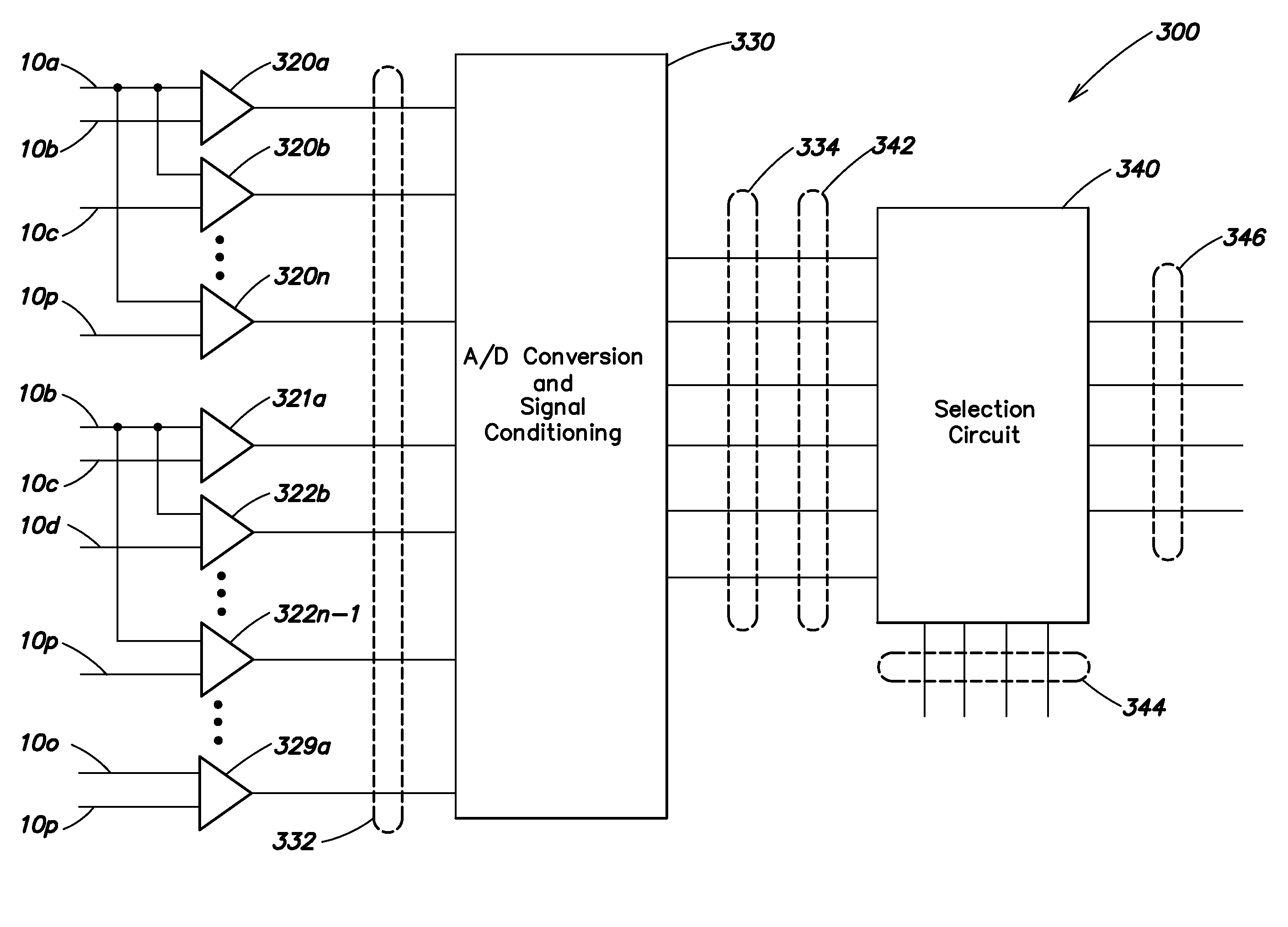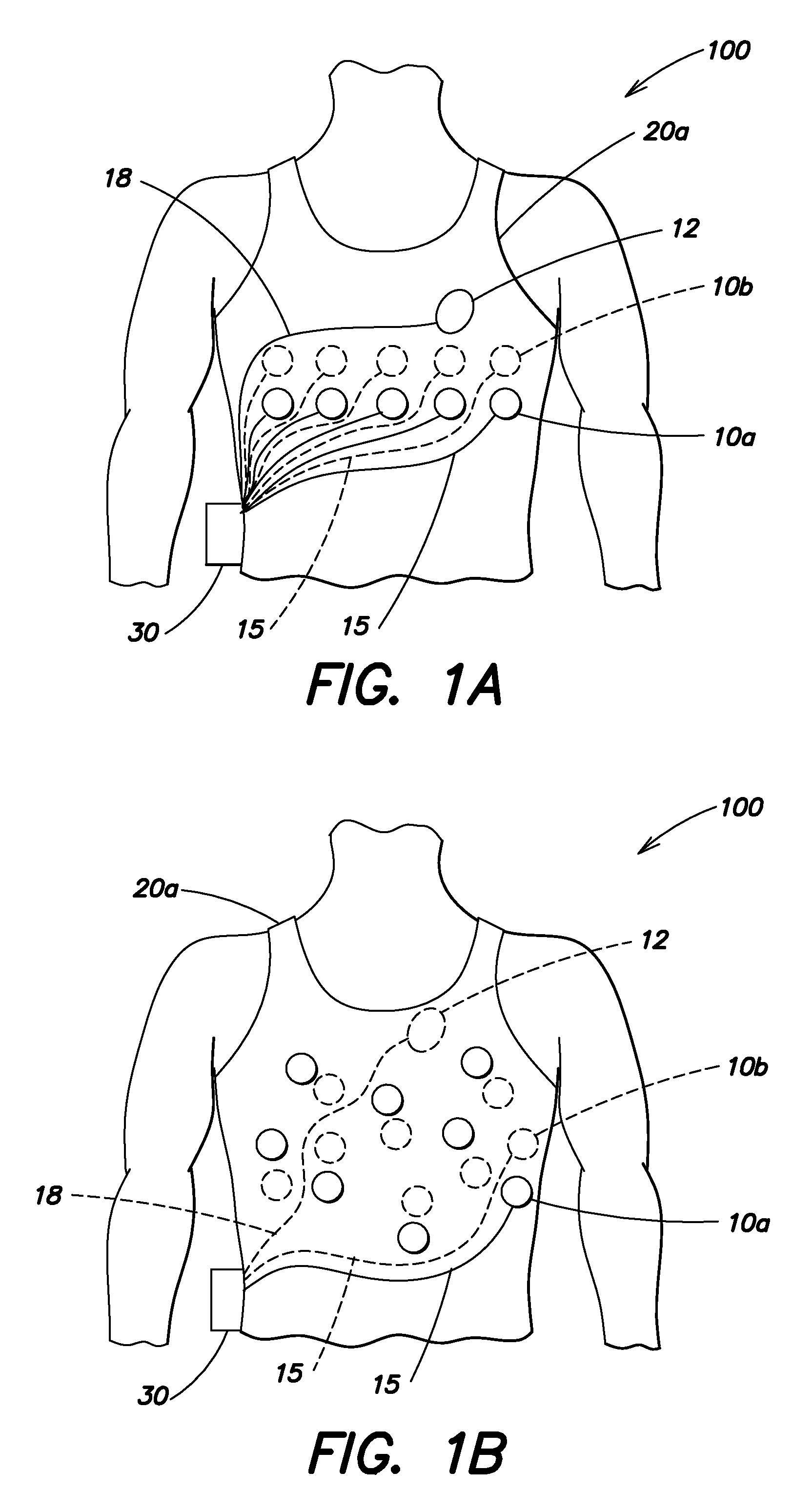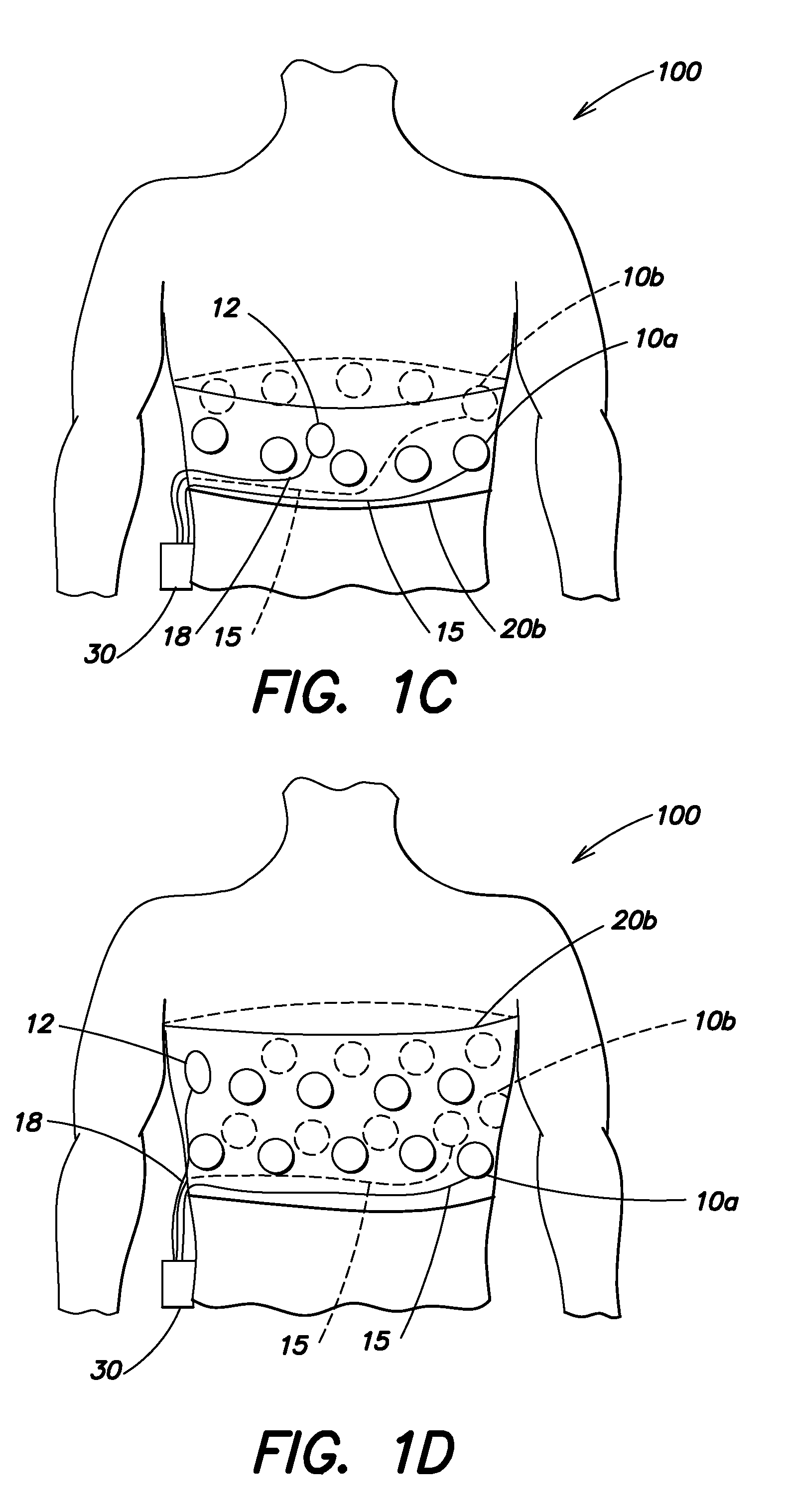Wearable ambulatory medical device with multiple sensing electrodes
a medical device and multiple sensing technology, applied in the field of cardiac function detection in patients, can solve the problems of electrode noise, noise can also be caused, and the quality of ecg signal is deteriorated, so as to reduce the number of fall-off alarms, reduce noise, and improve the quality of ecg signal obtained.
- Summary
- Abstract
- Description
- Claims
- Application Information
AI Technical Summary
Benefits of technology
Problems solved by technology
Method used
Image
Examples
Embodiment Construction
[0062]This invention is not limited in its application to the details of construction and the arrangement of components set forth in the following description or illustrated in the drawings. The invention is capable of other embodiments and of being practiced or of being carried out in various ways. Also, the phraseology and terminology used herein is for the purpose of description and should not be regarded as limiting. The use of “including,”“comprising,”“having,”“containing,”“involving,” and variations thereof herein is meant to encompass the items listed thereafter and equivalents thereof as well as additional items.
[0063]U.S. Pat. No. 5,944,669, which is incorporated herein by reference in its entirety, describes a method and apparatus for sensing cardiac function in a patient that may be used to initiate treatment of a detected cardiac condition. ECG sensing electrodes are used to obtain ECG signals from the heart of the patient and those ECG signals are analyzed using various...
PUM
 Login to View More
Login to View More Abstract
Description
Claims
Application Information
 Login to View More
Login to View More - R&D
- Intellectual Property
- Life Sciences
- Materials
- Tech Scout
- Unparalleled Data Quality
- Higher Quality Content
- 60% Fewer Hallucinations
Browse by: Latest US Patents, China's latest patents, Technical Efficacy Thesaurus, Application Domain, Technology Topic, Popular Technical Reports.
© 2025 PatSnap. All rights reserved.Legal|Privacy policy|Modern Slavery Act Transparency Statement|Sitemap|About US| Contact US: help@patsnap.com



